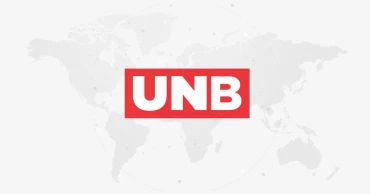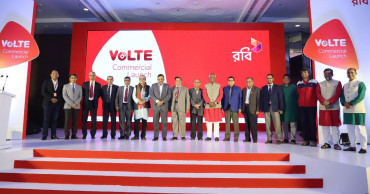GSMA
GSMA sets out 5G Roadmap for Asia Pacific
New Report Finds Wide Disparity in APAC 5G Readiness, With Spectrum Planning And Management Key To Success
A new analysis of 5G across the Asia Pacific (APAC), published in April by the GSMA, has revealed wide disparities in 5G readiness across the region. The report found that a planned approach to spectrum availability and management are key differentiators for the successful roll-out of high-speed 5G services between competing APAC economies, especially in 700MHz and mid-bands.
The GSMA's 'Roadmaps for awarding 5G spectrum in the APAC Region' provides market analysis and a guide for 5G development in countries across the Asia Pacific. It outlines the steps governments and regulators should take to enable efficient and effective availability of spectrum. To reap the benefits of ultra-fast 5G networks, an average of 2 GHz of mid-band spectrum alone is predicted to be required in the 2025-2030 timeframe, but in many cases, the current path to meeting such spectrum demand is unclear.
Read: 3G/4G network restriction in Rohingya camps to go soon: FS
The APAC region has been a leader in 5G deployment; Korea and Japan were among the first in the world to test and launch commercial networks. However, in other parts of APAC, 5G preparedness varies hugely and countries are faced with a number of issues including a lack of spectrum availability, especially in the sub-1 GHz range, and cross-border coordination. In some cases, 5G spectrum is yet to be awarded.
Different demographics and economies across the diverse region mean that countries such as Bangladesh, Cambodia, Indonesia, Pakistan, Thailand and Vietnam will require enhanced or bespoke roadmaps. Meanwhile, India is moving ahead with a robust consultation programme as it develops its plans for affordable connectivity.
"The most successful countries are those with a defined plan for 5G deployment. Across APAC, we see a wide disparity in countries' readiness for 5G, and the key differentiator is spectrum management. This report will help governments and regulators in countries across the Asia Pacific to enable 5G in the most efficient way possible," said the GSMA's Head of Spectrum, Luciana Camargos.
Read: Realme to host 5G summit with GSMA, Counterpoint, Qualcomm
5G roadmap recommendations
5G roadmaps outline the necessary steps, including identification and clearance of spectrum; technology definitions and restrictions; spectrum valuation (an important roadmap element), and award design.
Click here [ https://www.gsma.com/spectrum/resources/5g-spectrum-in-the-apac-region-roadmaps-for-success/]
to download 'Roadmaps for awarding 5G spectrum in the APAC Region' from the GSMA.
To find out more, click here [ https://eur03.safelinks.protection.outlook.com/?url=https%3A%2F%2Fwww.gsma.com%2Fnewsroom%2F%3Fp%3D18863%26preview%3Dtrue&data=05%7C01%7Cratherley%40gsma.com%7Cebeeaff7e9b042667a9808da243ab567%7C72a4ff82fec3469daafbac8276216699%7C0%7C0%7C637862132664738954%7CUnknown%7CTWFpbGZsb3d8eyJWIjoiMC4wLjAwMDAiLCJQIjoiV2luMzIiLCJBTiI6Ik1haWwiLCJXVCI6Mn0%3D%7C3000%7C%7C%7C&sdata=bzmc9sDvJiD2dZd9V8g0G459gDPlv2Ndj0ZvJZmrZUQ%3D&reserved=0].
SOURCE: GSMA
3 years ago
5G phone: Realme targets 100 million youth customers by 2024
Chinese technology company realme is planning to put 100 million 5G phones in the hands of young consumers around the world by 2024.
realme partnered with Qualcomm, GSMA and Counterpoint Research to host the inaugural "Making 5G Global: Accessibility for All" virtual summit Thursday.
At the summit, realme reiterated its commitment to work towards the advancement of 5G adoption globally. Also, the company revealed that the realme GT 5G performance flagship and the realme GT camera flagship are set for release in June and July.
Also read: Realme to bring Snapdragon 778G 5G, Android 12 Beta 1-equipped smartphone
In 2020, realme launched 14 5G devices in 21 markets. The company also expects to establish seven research and development centres around the world and invest $300 million globally in 5G technology research and product development in 2021 to expedite the adoption of 5G products.
Speaking at the summit, Madhav Sheth, VP and CEO of India and Europe, realme, said: "Starting with our first 5G model, the realme X50, we have been exploring new design concepts and technical innovations to bring users more slimline and design-rich 5G phones that have a powerful performance."
Also read: realme to host 5G summit with GSMA, Counterpoint, Qualcomm
"While the growth of 5G coverage is encouraging, a survey by GSMA shows that other barriers remain for widespread adoption of the new technology amongst consumers, such as affordability of the devices, lack of digital literacy and skills, and costs of mobile data. Nevertheless, the transition to 5G is inevitable across the world, and 5G is expected to bring $600 billion to the global economy over the next decade," said Kalvin Bahia, principal economist of GSMA Intelligence.
Realme Bangladesh Managing Director Tim Shao said: "As we can see there are many barriers to adopting 5G technology all around the world, this is where realme will be putting its efforts. We want to live up to the expectations of the youths and the youths need smart technology like 5G. We will introduce affordable 5G phones to empower the youths and help the country embrace 5G."
Read Robi deploys 4.5G technology in all its network sites
4 years ago
Harnessing assistive technology for Persons with Disabilities in South Asia
Facebook and GSMA have hosted a virtual industry discussion marking the tenth anniversary of the Global Accessibility Awareness Day (GAAD) and to drive more collaborations on disabilities inclusion in South Asia.
The panelists included Vashkar Bhattacharjee, National Consultant for Accessibility, a2i, Aspire to Innovate programme of the ICT Division in Bangladesh.
There were also representatives from Facebook, G3ict, Dialog Axiata in Sri Lanka, and DeafTawk in Pakistan.
Read: Realise rights of all persons with disabilities: UN
Assistive technologies (ATs) are systems and services designed to improve access for persons with disabilities, many of whom are often excluded and marginalised in society, said a media release on Friday.
There are an estimated 690 million persons with disabilities in the Asia Pacific region and ATs are still largely inaccessible to them.
Action is required to reach this underserved segment of the population, drive innovation, and address the physical and social barriers.
Speaking at the event, Michael Nique, Senior Director, GSMA Assistive Tech, said, “Removing the barriers faced by persons with disabilities requires informed action from all stakeholders.
Tech and mobile industry, for example, need to consider accessibility needs and methods early on, and increase the number of persons with disabilities in the development and testing process. By doing so, we can make meaningful change and help ensure no one is left behind in an increasingly digital world.”
Panelists at the webinar agreed that digital innovations could bridge the access gap to ATs and promote the inclusion of persons with disabilities.
For example, based on the GSMA Intelligence Survey 2019, 41 percent of persons with disabilities in Bangladesh are mobile owners, of which 55 percent consider that mobile helps them with their daily tasks, 67 percent say it provides them a feeling of safety and 53 percent think it gives convenient access to useful information.
Read: Palak unveils software to bridge jobseekers with disabilities and employers
Monica Desai, Global Head of Connectivity and Access Policy, Facebook, shared some of the company’s recent initiatives and innovations in this area, including the GAAD pledge that Facebook took last year and the commitment to making the React Native open source framework fully accessible.
“We, at Facebook, believe that access is an opportunity and when everyone is connected, we all benefit. Our goal is to make it possible for anyone, regardless of ability, to access the information and connections that happen on Facebook. We are excited to continue advancing accessibility and building collaborations to make more progress on inclusion for persons with disabilities in South Asia, and around the world,” said Desai.
Panelists also discussed how the current global health crisis presented immense challenges acutely felt by persons with disabilities, but it also brought advancements in accessibility.
4 years ago
Robi launches country’s first ever VoLTE service
The leading digital service provider of the country, RobiAxiata Limited has launched the Voice over LTE (VoLTE) service in the country for the first time.
6 years ago






